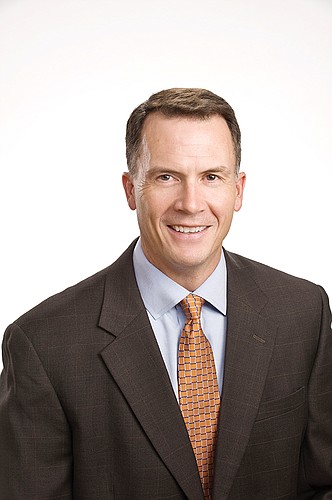- November 25, 2024
-
-
Loading

Loading

SEAN DAVIS
Chief Investment Officer
The Sembler Co.,
St. Petersburg
JOSH BEYER
Senior Vice President, Development
The Sembler Co.,
St. Petersburg
Davis, who joined Sembler in 2007, leads the company's Investments Departments and oversees all financial operations, as well as property acquisitions and dispositions. Beyer oversees Sembler's shopping center developments, and has worked on the company's Crosscreek Village and Nokomis Village projects, among others. The pair recently attended the International Council of Shopping Center's annual ReCon gathering in Las Vegas, which is considered the year's most pivotal conference for retailers, developers, brokers, bankers and others, and agreed to share their experiences and observations.
What are your lasting impressions from ReCon this year?
BEYER: There seemed to be a lot more energy at the conference this year as compared to last, and it certainly seemed better attended. The meetings I had were all very positive, and people seemed to be feeling pretty good about the trajectory of the industry and opportunities. Though new construction levels remain pretty low, relative to where we were going into the last recession, there's a lot of optimism about the future.
DAVIS: I saw that there are many segments of retail that are being impacted by e-commerce, and there are more questions than answers to that trend at this point. Retailers are revising their strategies to adapt. And I think there will be increased vacancies. One takeaway from the conference was empty Sports Authority spaces and those like it will be gobbled up pretty quickly.
BEYER: Yeah, there seems to be a tremendous amount of capital available to reimagine centers with vacancies to shopping experiences where what's sold is not only hard goods but they're also a place where you can see a movie, have a meal or go bowling. Owners are trying to create a destination place, not just a place to pick up goods. The thinking is how to create a better mousetrap.
What surprised you the most at ReCon this year?
DAVIS: I suppose hearing from some retailers that they are reviewing or revising their strategies, and that they have concerns about minimum wage increases and how it impacts margins was the biggest thing. Many were talking about self-service models. A lot of fast food restaurants are doing that now, grocery stores have tried it, even Target.
BEYER: One of the things that struck me out there was just how many grocery store chains are competing in the Florida marketplace now. There must be 10 different chains actively working and expanding, like Sprouts, Lucky's, and Earthfare. That's something I've not seen in my career in Florida. Everyone is trying to create their own niche. And it's happening because Florida is the third most populous state now, and that population growth and influx is too important to ignore.
What takeaways do you have relative to future retail trends?
BEYER: Retail is almost 100% tied to population growth, so as long as Florida is growing, there will be opportunities for retailers and for shopping centers to be built or expanded or revised. And retail always follows residential growth by a few years, so we're still awaiting the point in the recovery where it justifies new square footage being built.
DAVIS: What we're seeing from ReCon is the development of “omni-channels” for retail; different points from which to sell the same goods, be it a combination of online, in stores, through digital devices, whatever. And former exclusively e-commerce purveyors are now setting up bricks-and-mortar stores. Wal-Mart in-store customers spend an average of $1,400 per year, and their exclusively online customers $200 a year. But those who shop both average about $2,500 a year. So the internet is not killing retail stores, but it is influencing how goods are being sold.